His face is everywhere. Black and white, peering out from billboards across the country behind Woody Allen-esque glasses, Serhiy Taruta has accomplished a quintessentially Ukrainian feat: to be both instantly recognizable but completely lacking in substance.
One of the less successful Ukrainian oligarchs, Taruta made a fortune in steel but saw it shrink from billions to millions.
Taruta has been flirting with politics and public service for a long time, having served two terms on Donetsk Oblast Council and winning a seat in parliament in the 2014 election as an independent candidate.
His political peak was his seven-month stint as the governor of his native Donetsk Oblast in 2014, when Russia started a war in the region.
Since then, he founded a party, Osnova, and is expected to run for the presidency in 2019.
But who is Taruta really?
Some say a faux populist, others a Russian stooge, while others yet see him as a warrior against Western-backed policies that balance the country’s budget on the backs of the poor.
But the numbers — and his actions over the past three years — scream deadbeat. In a presidential poll by GFK Ukraine research company, he is supported by 1 percent of voters.
It didn’t help his credibility that in the past, Taruta refused to answer questions about the funding of his party that erected billboards around Ukraine, other than to say that he’s “independent.”
Taruta’s main political activity has been directed against the National Bank of Ukraine, one of the only institutions to enforce a modicum of accountability on the country’s debtor bank owners.
Taruta is widely expected to announce a presidential run for the March 2019 election, and implied that he would do so to the Kyiv Post.“He who has the best polling in (our) party will represent the party,” he told the Kyiv Post in an interview at his office on Yaroslaviv Val Street in central Kyiv.
Foundational texts
Taruta heads the political party “Osnova,” meaning “foundation” in Ukrainian and Russian.
Founded in fall 2017, Osnova has been campaigning around the country on a slogan of how “Ukraine will start working!”
When asked how he planned to accomplish this, Taruta pivoted to discussing his values.
“We’re going to be a consolidated political force that still fundamentally stands for values, and not political appointments.”
When the Kyiv Post asked what those values were, Taruta replied: “the values are written in the doctrine!”
“The book is a document where we put quite grandiose aims for ourselves,” he said, before failing to specify those aims.
Where’s the money?
The biggest question around Taruta, however, is not whether he will run for president — rather, it’s whether who funds his campaign.
Taruta and his handlers are notoriously testy about who’s financing his political campaign and country-wide billboards. His press secretary, Olena Moroz, cut off a TV interview in October after a journalist asked him about his party’s funding.
Taruta told the Kyiv Post he was self-funding his campaign.
“My pension fund and I are investing in this,” Taruta said, before denying that he was sponsored by any external oligarch (given that he’s lost his own status as one).
But it’s not clear if Taruta has enough money left to do it.
Once a billionaire co-founder of the steel holding Industrial Union of Donbas, where he still owns a 24.9 percent stake, Taruta suffered a precipitous loss in fortune. Factories that he owned — including the Alchevsk steelworks — have been seized by Russian-backed separatists, cutting off his cash flow.
Taruta’s net worth went from $2.65 billion in 2008 to $597 million in 2013, as estimated by Forbes Ukraine.
Today, Taruta says he had managed to preserve 10 percent of his former wealth — around $265 million.
Some of his financial ties have raised eyebrows. Since 2009, Russia’s state-owned Vneshekonombank has owned a major stake in the Industrial Union of Donbas.
Taruta denies that the Russian stake in his main business asset affects his policies at all. After all, his only concrete policy proposal on the Donbas involves restarting the Minsk talks in Vienna while bringing Washington to the table, as well as a hare-brained plan from summer 2017 that proposed a multi-billion dollar “Marshall Plan for the Donbas.”
“Russia is a huge barrier behind which there is no information,” he said.
When asked about his frequent appearances on pro-Russian Ukrainian TV channels, he replied that “Nobody sees me on TV as a separatist, but as a person who paid for defending Mariupol,” referring to a port city in Donetsk Oblast that was under attacks of Russian-separatist forces but remained under Ukrainian government’s control.
Indeed, Taruta played a role in 2014 in financing the Azov Volunteer Battalion, but claims to have stopped funneling money to that and other ultra-nationalist groups.
Deadbeat warrior
Taruta constantly denies, without any prompting, that he wants to profit from politics.
“I’m here not to get wealthy, but to serve the Ukrainian people,” he says.
But in fact, his most brazen political acts over the past three years have almost all been directed at the National Bank of Ukraine.
Former NBU Governor Valeria Gontareva stated during her tenure that Taruta and his companies owed Hr 2.5 billion ($93.9 million) to the Ukrainian banking system.
In September 2016, he printed a pamphlet about Gontareva, alleging mass corruption and fraud at the NBU under her tenure. He flew to Washington, D.C. to distribute the pamphlet at the International Monetary Fund’s annual meeting.
And in September 2017, he elicited ridicule after hiring a D.C. lobbyist to orchestrate a meeting in the basement of the U. S. Capitol Building, again about corruption at Ukraine’s National Bank, that was presented in Ukrainian media as a Congress hearing. A former CIA head appeared at the hearing, along with other has-been D.C. politicos.
“A former CIA head wouldn’t have gone to a fake hearing,” he retorted after a question about the event. “There were many people there who are interested in Ukraine, and there were debates.”
“Don’t insult Congress by calling it a basement,” he added, incomprehensibly. “It’s a great space where committees have met.”
You can also highlight the text and press Ctrl + Enter


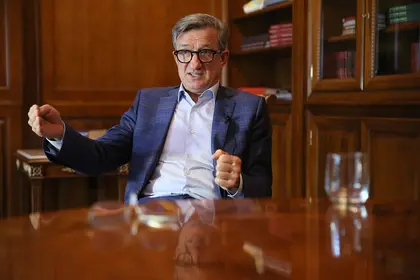
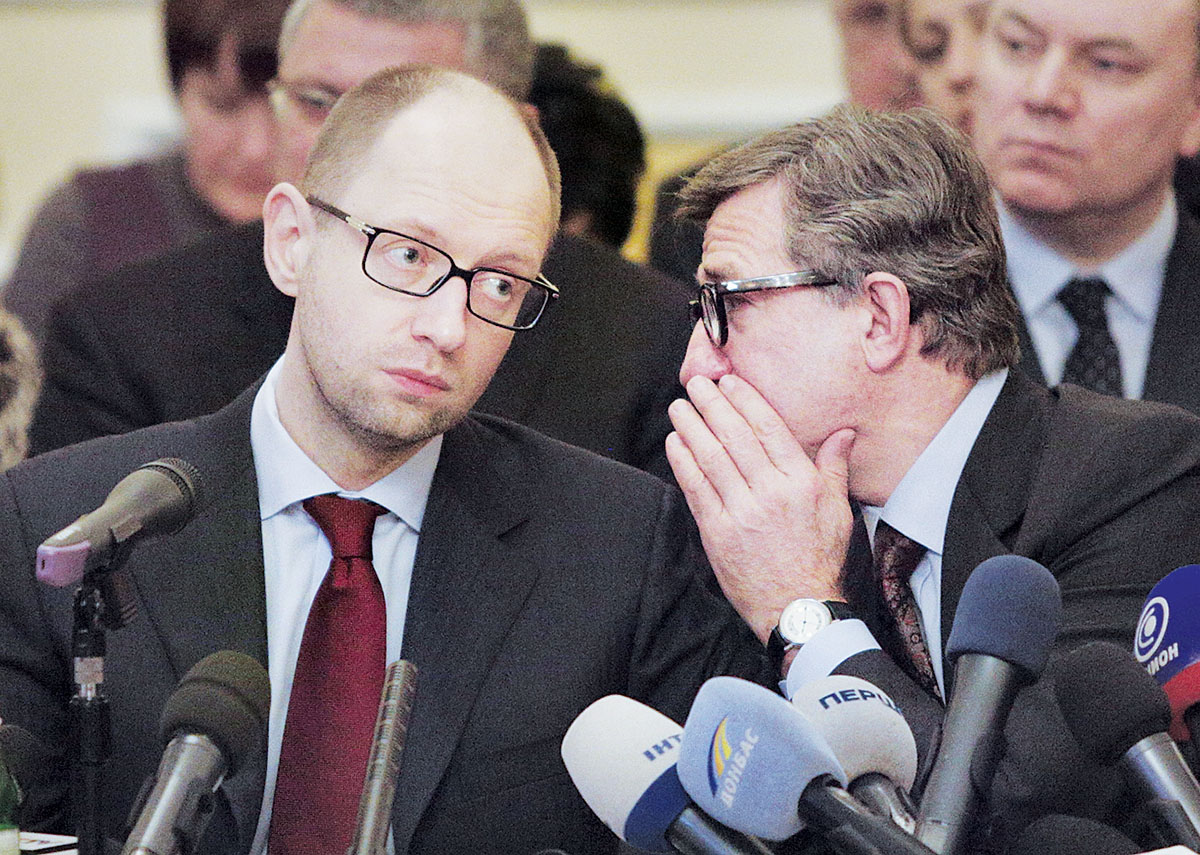

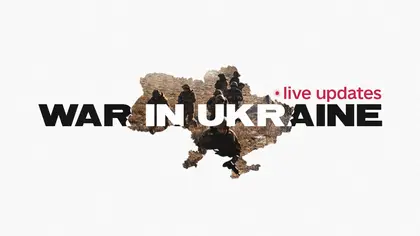
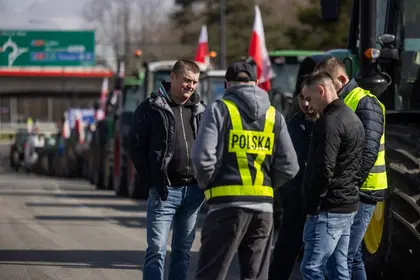
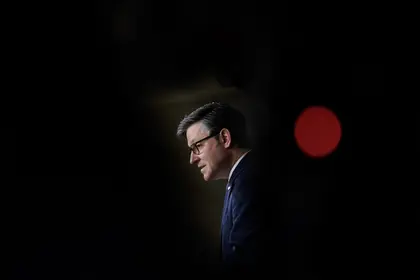
Comments (0)